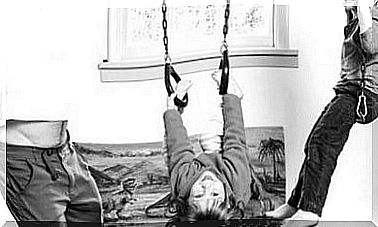Silence Allows Extraordinary Things To Happen
It is a requirement for communication in its truest sense, and also for music.

Silence is part of life ; at every moment one has the opportunity to attend to oneself and discover what silence brings.
In society and with the rhythm in which we live, we are so used to noise that even unconsciously, and therefore automatically, we seek to cover time with more noises, sounds, words, etc. However, when everything shuts down, when you disconnect from your mobile phone, music, emails or any other daily habit, you may find that something greater is emerging.
In the silence the magnitude of life appears, the simplicity, the flow, the possibility of observing things from a broader perspective. You just have to give yourself permission to be with yourself or, better, to be in yourself.
The silence magnifies
Listening to silence is available to everyone and does not require rituals or sophisticated techniques; it is simply about wanting to listen beyond the sounds and learn to enjoy silence even when accompanied.
Listening to one’s silence requires an act of generosity with oneself and an understanding of the mechanisms of the mind. Thoughts are in constant motion, it is something that is part of human nature. Whatever happens, the mind usually has an opinion on it.
Sometimes to criticize or demand more of us, others to analyze what is happening in pursuit of the vision that he deems most appropriate. While it is true that the mind performs vital and cognitive functions that are fundamental to our survival and well-being, it is also true that it cannot logically resolve all the issues that happen to us, as there are aspects that it eludes and cannot understand.
The mind is also wrong. This is what usually happens when you think about things a lot. It then seems as if the mind is stuck and, finding no solutions, repeats the same reasoning in the hope of finding an answer. In those moments it is very useful to disconnect from the process and rest.
It is then when silence gives us the opportunity to observe ourselves from another place, without so severely judging our actions or decisions, and recognizing our capacities to solve what worries us. Many great discoveries are the result of moments of silence in which what we call insights are produced : moments of intuition and clarity where everything fits and makes sense.
In those moments the mind stops thinking to access a larger space. It is in these states that new and creative ideas emerge. We can solve situations that seemed complicated and difficult.
How to cultivate silence
You just have to want to do it, putting your intention into it and being kind to yourself. It’s about being mindful and deciding what you want to pay attention to. Throughout the day we receive numerous external stimuli that we attend to without even deciding to do so. This not only happens with sounds but also with images and messages from advertising, the press, the internet, establishments, etc., and which are already part of everyday life.
To cultivate silence, it helps at first to get away from noise or find a space in which to be alone. It is then when you can begin to practice, knowing what our internal dialogue is like and reconciling with it.
Respecting thoughts as part of our mental process and at the same time expanding the internal vision to other spaces free of judgment is a path that brings us closer to inner stillness. That is the goal of many mystics and meditators: the state of mindfulness, the prelude to enlightenment.
In this state everything is here and now, an instant of spaciousness and fullness. But such a practice taken to the extreme can separate us from life rather than unite us with it. The question would be, therefore, to what extent it is appropriate to have such states as a priority.
Life is vast and complex. Knowing that we have the opportunity at every moment to stop to listen to ourselves is important and very effective. It is not necessary, therefore, to retire to a temple, disconnect from daily routines or learn a certain technique. It is enough to trust your own instinct and inner wisdom.
Silence helps to be aware here and now and to have more strength and presence in life.
A latent ability
Every human being has the ability to listen to himself. Learning to do it constructively requires respecting yourself and understanding that many of the things that a person says to himself are the result of a habit maintained for much of his life.
Silence requires practicing inner listening, and sometimes that can be scary. But those who dare to cross that first threshold of listening often discover very friendly and enriching spaces within.
There are people who flee from their silence so as not to hear what they do not like about themselves. However, those who give themselves the opportunity to observe what they say to themselves can understand how this affects their way of behaving and acting in life.
By going through this first phase, you can begin to recognize what you think without having to fight it. Then you begin to discover a space that leads not only to know yourself better, but to be more in yourself. Thus, the purest of the human essence is accessed and the power to reconcile with oneself and with the environment.
Relationships and daily activities become easier and more fluid. Silence requires an attitude of inner recollection that can be practiced in daily acts. That is where we can really find the most valuable silences, the most surprising breaks and responses.
The stillness when looking
When looking, attention is usually focused on a specific purpose. For example, on the sidewalk, you are attentive to cut your way through people and avoid possible obstacles. But there are ways of observing from stillness and without intention.
When the gaze widens and relaxes because there is no need to analyze or control anything external, stillness sets in and allows you to experience internal silence while being aware of the external rhythm. Being able to feel the inner stillness while respecting that everything out there follows its rhythm provides strength and greater decision-making capacity. This practice allows you to be in yourself and not be carried away by the rhythms of others. Authentic presence is gained.
The meaning of silence
Silence helps to be aware here and now and, therefore, to have more strength in life and presence before others. Silence connects us to life, breath and the essence of things.
It helps to simplify, to differentiate the important from the irrelevant, to take care of yourself with more respect and to give yourself the opportunity to be with yourself from another place, fully inhabiting the body. Silence provides a spacious and welcoming environment.
In our attitude lies the key to find the way to the well-being and comfort of our silence and that of others. For this, it is necessary to learn to listen to what happens to us and what happens to others without having to add noise to the silences.
Beauty and meaning
When we stop to contemplate a landscape or a daily situation from the inner stillness, it is possible to perceive how something more beautiful is born that goes beyond sounds and images. Because everything that is viewed with breadth and awareness acquires beauty and meaning. In those moments the mind empties to be filled with the fullness of silence and harmony.
In the face of such a pure and enriching experience, words are unnecessary. Recreating yourself in these states of contemplation is possible in everyday moments: waiting for the bus, in a park, in line at a supermarket, cooking, in the light of the moon … Any moment is good if you intend to discover what arises beyond the sounds.
Paying attention to outer silence allows inner stillness to emerge.
Silence accompanied
Every moment is full of silences. With practice, we come to discover that even in noises there are silences that can become more present in our lives. It all depends on where the attention is focused, because what one attends becomes bigger and more important.
It can be practiced by listening to the silences that occur in the spaces between the words of a conversation and observing what happens. A sense of greater presence and depth may appear at that time and with that person. Anywhere you can pay more attention to silence than to sounds.
As Eckhart Tolle says in his book The Power of Now : ” Paying attention to external silence creates internal silence, quiets the mind. Every sound is born from silence, dies again in silence and during its life span is surrounded by silence. silence allows the sound to be “.
In a conversation with a friend or family member there is the opportunity to listen to the other and at the same time to listen to oneself from the inner silence. To experience listening between the words, the silences of the words and the words of the silences. It is common when talking with another person to neglect listening.
Your speech or response is often anticipated when the other person has not yet completed their explanation. The result is that the other does not feel heard, communication is diluted and quality is lost.
Listening to the other is to remain silent and empty of thoughts while speaking. It is learning to respect the rhythm that he needs to express himself. The impatience to want to give an answer can lead to not listening carefully and therefore not understanding the other in their needs.
Being aware that you can have a time and space of internal silence to respond is to respect yourself and others without having to cover the silence that is created at that moment. That is the discomfort that must be overcome. A silence can be more enlightening than many words run over by the urge to say and argue right off the bat.
The Arab proverb already says it: Shut up if what you are going to say is not more beautiful than silence.









